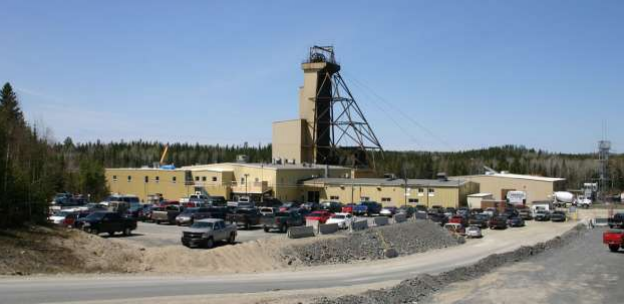Town of Kirkland Lake
About Us
 |
| Kirkland Lake Gold - 2010 |
A lost prospector, a rifle shot and a misplaced step…these were the elements that lead to the founding of Kirkland Lake, and signaled the opening of one of the most exciting chapters in Canadian mining history.
William Wright and Ed Hargreaves were prospecting in the area in 1911. Hargreaves became lost while hunting for rabbits and fired a shot to attract the attention of Wright. While scrambling through the bush, Wright stumbled across a quart outcro with clear evidence of gold – lots of it. The next day, Wright and Hargreaves staked out their claims. Little did they know that they had just discovered the main ore-bearing fault of the great mines: the Sylvanite, Wright – Hargreaves, an Lakeshore. And with that staking, the Kirkland Lake gold rush was on.
As prospectors gave way to production, civilization followed. The municipal council of the Township of Teck was sworn in 1919. The new council quickly set about bringing order to the unorganized township. Roads were built, pipes laid, and rules created to govern the rapidly growing population. And the people came. Some like Roza Brown and Charlie Chow will forever live in our memories and imagination, for they were the kind of people that added true colour to the community. But there were many others. In 1939, the population peaked at 24,200; 4,680 of which worked for the mines.
Mining remained the economic mainstay of the community until the latter half of the 20th century, when stagnant gold prices and rising production costs and the lack on new finds led to a gradual slowdown. The Toburn mine closed in 1953, followed by the Kirkland Minerals in 1960, Sylvanite in 1961, Lake Shore and Wright-Hargreaves in 1965, Teck Hughes in 1968 and Macassa in 1999.
Then followed the bad years, the lean years when jobs were hard to find and optimism even more so. Municipal council did what it could. For a while, it looked like the environmental industry might be able to turn the town around. But opportunities like the Rail Cycle North‟s waste facility at Adam‟s Mine or Bennett‟s PCB cleaning plant collapsed. Blame it on “Not in My Back Yard” syndrome, bad planning and worse PR – it doesn‟t matter. All that mattered was that you couldn‟t give a house away in KL, and the town suffered the third greatest population drop in the country in the 2003 census.
Things change, though. While everybody else was looking to leave, Foxpoint Resources was looking to the past. They didn‟t believe that KL was mined out, and undertook an aggressive exploration program of the old mines. They found enough there to start new operations, especially as the price of gold started climbing again. And then came the big strikes. Finding the South Mining Complex in 2005 marked a huge departure from the past. Here was a massive new gold find, running north-south instead of east-west like the old breaks. And then the rush started.
Gold rebounded, hitting prices no one had dared to hope see. At $700 an ounce in 2007, things looked good. But when the price jumped to $1200 an ounce and kept going up from there – well now, that is boom country. And nowhere was this more evident than in the Kirkland Lake district. Fox Point, now operating as Kirkland Lake Gold, became the darling of the industry. And they weren‟t alone. Other mines have become part of the lexicon in the „new‟ KL Gold Camp: Northgate Minerals and it Young Davidson Mine in Matachewan; Armistice Resources; St. Andrews Gold Mines; Queenston Minerals ….and the best part is the projected lifetimes of the mines. It is generally estimated that each operation will last 15 years. That is a very conservative estimate, based on gold at $700 an ounce. So if the price of gold stays above that (and the pundits in the know say it will easily stay above that), things are looking good!
So what is KL today? A boom town, just as it was a hundred years ago. The challenges are the same as then: how do we manage this growth? We need more homes. We need more workers. We need more commercial and industrial enterprises. But hey, who‟s complaining?